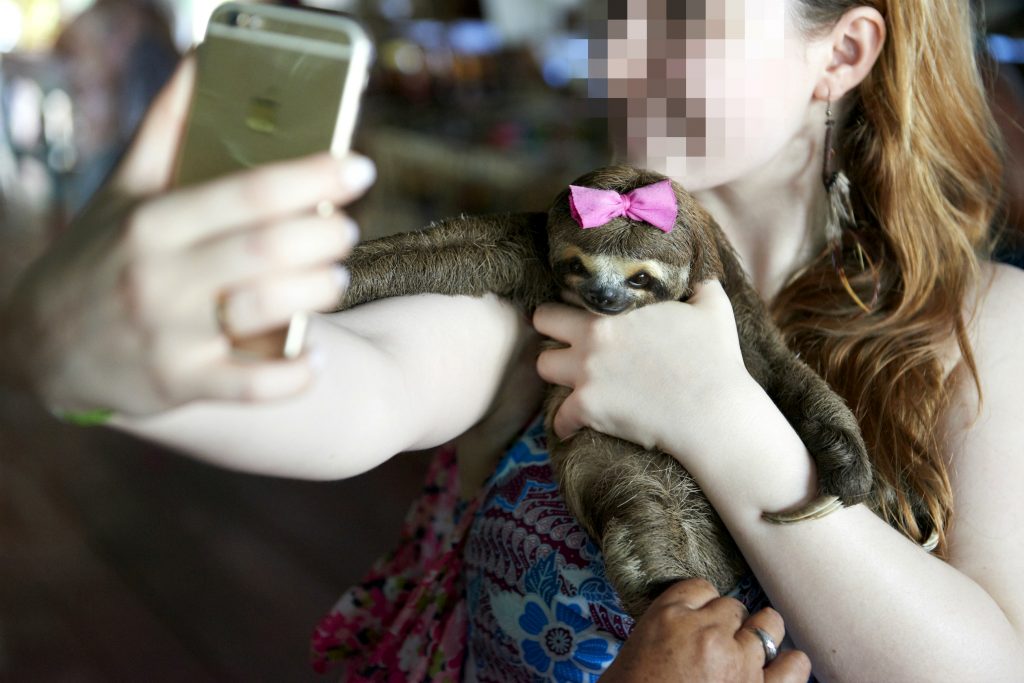The thrill of experiencing wildlife can be the highlight of a trip, an opportunity to take the perfect photograph, and, in some cases, the main reason for choosing a destination. On World Wildlife Day (3 March), the travel industry can celebrate the role wild animals all over the world have played in attracting tourism to new regions — and it’s also the ideal time for adventure travel companies to ensure their offerings are free from animal cruelty.

Up to 40 percent of the global tourism industry is driven by the demand to experience wildlife. Responsible wildlife tourism can contribute positively to local economic development, biodiversity, and ecosystem and wildlife conservation if managed humanely and sustainably. However, research conducted by Oxford University reveals the vast majority of wildlife tourist attractions (WTAs) are detrimental to the animals’ welfare and conservation of the species in the wild. To address this, the World Animal Protection is working with the travel industry to keep more animals in the wild, where they belong.
Most travelers visiting wildlife tourist attractions consider themselves to be "animal lovers” and are largely unaware of the cruelty they support when they pay to walk with a lion, ride an elephant, swim with a dolphin, or take a selfie with a sloth. Researchers reviewed more than 50,000 tourist reviews on TripAdvisor and found 80% of people left positive reviews for venues scientifically assessed by experts to be cruel.
Despite these enthusiastic reviews, global polls consistently show tourists take part in wildlife tourism because they love wild animals, would prefer to see them in the wild, and want their travel companies and tour operators to stop selling cruel attractions. These findings helped World Animal Protection educate and grow a global movement of travelers and travel companies to protect wildlife through tourism. The organization’s campaign influenced TripAdvisor to stop selling some of the cruelest wildlife attractions and start educating its users on the impacts their travel decisions have on animals.

Adventure travel companies like Intrepid Travel were at the forefront of this change, removing elephant rides and shows from its offerings in 2014. “Elephant riding was on every traveler’s bucket list when Intrepid made the decision to remove rides from all our trips. Southeast Asia made up around 40 percent of our business, so we took a huge commercial risk when we decided to be the first global travel company to end elephant rides, but we couldn’t ignore the research, and we believed our travelers would support our decision once they had all the information,” said James Thornton, CEO of Intrepid Group. “That leap of faith paid off. People want to do the right thing. It’s now up to the tourism industry to help them in doing so and to encourage elephant owners to offer those truly elephant-friendly experiences.”
Now more than 190 travel companies have committed to not offer, sell, or promote elephant rides or shows anymore. Many of these companies have gone further, making a commitment to stop selling any wildlife entertainment, whether it’s seeing wild animals perform in a show or avoiding direct interactions with wild animals for a photo op.
"When addressing animal welfare across our global product range, we did not limit our consideration to elephants, because there are many animals — wild and domesticated — that are used in the tourism industry,” said Donna Lawrence, responsible travel manager at World Expeditions. “We audited our trips and removed any instances of wild animals being used for entertainment, such as elephant rides. In consultation with World Animal Protection, we put in place guidelines for the humane treatment of domesticated animals, such as dogs used for dog sledding and mules used for carrying loads on a trek.”
World Expeditions has a comprehensive Animal Welfare Code of Conduct, which covers a broad range of activities from viewing wild animals in their natural habitats to the purchase of souvenirs made from animal parts. “Enacting our Code of Conduct requires continual training and open dialogue with our partners in the field,” Lawrence said. “Traveler feedback is a great measure of how we are performing in the field, and we use feedback to further improve our animal welfare standards. We encourage all travel companies to mitigate the impact that their itineraries have on wildlife.”

An increasing number of adventure tourism providers have shown interest in establishing protocols like these to ensure their offerings are free from animal cruelty. There are a number of things companies can do if they, too, want to evaluate the wildlife attractions they endorse for potential cruelty, educate their customers, and shift demand toward more wildlife-friendly experiences.
- Commit to animal welfare. Take the World Animal Protection’s pledge to phase out elephant rides and other forms of wildlife entertainment.
- Develop an animal welfare policy and action plan. World Animal Protection is available to help companies on an individual basis develop a plan that addresses their specific needs.
- Train staff on animal welfare and how to identify cruel attractions. Existing training modules and checklists can assist in the process.
- Remove wildlife entertainment from your supply chain. Use established checklists to help identify red flags, and see the report on the top cruelest attractions.
- Educate your travelers on your company’s commitment to offer cruelty-free experiences and explain what they can do to be animal-friendly tourists. Include World Animal Protection’s animal-friendly travel guide in every trip prior to departure.
- Work together to improve industry standards, policy, and legislation to better protect the welfare of animals and preservation of wildlife through tourism. Interested individuals are encouraged to join a working group of concerned industry leaders actively working on policy change and creating ethical alternatives. Contact World Animal Protection for more information.
